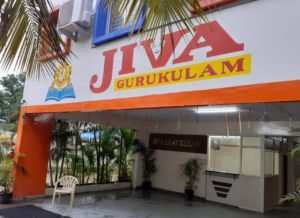Rakshabandhan, Hayagreeva Jayanti, and Upakarma are significant festivals in the Hindu tradition, each carrying deep spiritual and cultural meanings.
1. *Rakshabandhan:*
Rakshabandhan is a festival that celebrates the bond between brothers and sisters. The word “Raksha” means protection, and “Bandhan” means bond, so the festival signifies the protective bond between siblings. On this day, sisters tie a sacred thread called “Rakhi” around their brothers’ wrists, symbolising their love and prayers for their brothers’ well-being. In return, brothers promise to protect their sisters and give them gifts. This festival reinforces the family bond and the importance of love, care, and mutual respect among siblings.
2. *Hayagreeva Jayanti:*
Hayagreeva Jayanti is a festival that honours Lord Hayagreeva, an incarnation of Lord Vishnu, who is depicted with a horse’s head. Lord Hayagreeva is worshipped as the god of knowledge and wisdom. According to Hindu mythology, Lord Hayagreeva restored the Vedas, the sacred texts, after they were stolen by demons. Devotees, especially students and scholars, observe this day by praying to Lord Hayagreeva to bless them with wisdom, knowledge, and intellect. The festival is marked by special rituals, prayers, and offerings in temples dedicated to Lord Vishnu.
3. *Upakarma:*
Upakarma, also known as Avani Avittam in South India, is a significant ritual for Brahmin men. It is the day when they change their sacred thread, or “Yajnopavita,” and renew their commitment to their spiritual duties. The day also involves performing the “Kamokarsheet” ritual, which is a penance for any mistakes made during the previous year’s Vedic studies. Upakarma is a time for spiritual rejuvenation and rededication to Vedic learning and practices. It usually takes place during the Shravan or Bhadrapada month, depending on regional traditions.
These festivals play a crucial role in preserving the cultural and religious heritage of Hinduism, emphasising the importance of family bonds, knowledge, and spiritual discipline.



